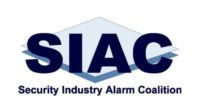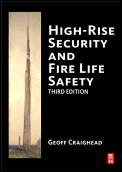Last year, a federal court ruled in favor of ADT and other alarm companies against the Lisle-Woodridge Fire District, stating the District did not have the right or authority to be in the fire alarm monitoring business, let alone monopolize it through an ordinance. The court issued an injunction against the District at that time and set a deadline for it to refund customers and exit the fire alarm monitoring business.
On July 31, 2013, the 7th Circuit Court of Appeals, which is one level below the U.S. Supreme Court, upheld the trial court’s ruling in a 50-page opinion. The court affirmed almost entirely the Modified Permanent Injunction issued by the District Court for the Northern District of Illinois that overturned an ordinance in the Lisle-Woodridge Fire Protection District (LWFPD) that “shut down the private market in fire alarm monitoring services by substituting for it a less safe and less reliable system operated by just one chosen vendor,” according to the decision.
Kevin Lehan, executive director of the Illinois Electronic Security Association, explained what this means for security businesses operating in the area, “In the immediate term, the decision will probably not impact your business. The 7th Circuit ruling basically “locked in” a court ruling that has been in effect for more than a year.
“However, the ruling is a substantial step forward toward opening Chicago-area markets that have prohibited Illinois alarm companies from providing fire-alarm monitoring. The impact will be felt when a community that previously restricted private alarm monitoring accepts it. A number of communities and their fire chiefs have expressed support for this. Hopefully, we are close to breaking that threshold.”
Lehan warned that though the decision concludes that fire protection districts do not have the authority to engage in fire alarm monitoring, it does not say anything about municipalities.
Nick Bonifas, attorney at Alarm Detection Systems, explained, “Our claims that the District interfered with customer contracts and created an illegal monopoly are equally applicable to municipal fire departments. These federal issues will be pursued during the next phase in the case with the District. As the Court also found the monitoring functions by the District to be substandard by NFPA standards, we believe the same conclusion can be reached with regard to municipal fire departments.”
Though the case continues to move forward and this is not a final “win,” Lehan stated that this latest ruling is “a significant and positive step toward the goal of opening anti-competitive markets.”
The IESA, which is not a plaintiff nor did it have any official involvement in this case, agrees with the 7th Circuit’s decision and implementation of the injunction issued by Federal Judge Milton Shadur.
“The IESA is very happy that the 7th Circuit upheld Judge Shadur’s permanent injunction that protects the rights of private industry. This case — specifically what was proven in evidentiary hearings — validates the position the IESA has taken since it was filed: the private sector was unfairly barred from competing for business by a government body that created a self-serving monopoly for the purpose of revenue. Further, it was proven that the municipal monitoring method was inferior to the services offered by the private sector. In fact, it was shown that the method used in the Lisle-Woodridge Fire Protection District was not code compliant,” said Lehan. “Going forward, the IESA hopes that the public and private sectors develop more of a cooperative spirit so that together, we can provide the highest levels of life-safety in communities of all sizes across the state and nation.”
Background
In 2010, lead plaintiff ADT Security Services and other Illinois-based licensed alarm contractor agencies sued LWFPD and Chicago Metropolitan Fire Prevention Company after LWFPD passed an ordinance under which it took over fire alarm monitoring for all commercial properties in the district. Plaintiffs contended that the ordinance violated federal antitrust laws and federal constitutional guarantees of equal protection, due process, and the right to contract, and that the District did not have the legal authority to enact the ordinance under the Illinois Fire Protection District Act.
On August 7, 2012, the District Court entered a Modified Permanent Injunction Order that, in essence, required the District to permit the alarm companies to receive and transmit signals directly from property alarm boards (independently of LWFPD) and to retransmit those signals to DuPage Public Safety Communications (Du-Comm) via Central Stations. Also, the injunction required the District to allow alarm companies to use any technology equivalent to wireless transmission and compliant with the NFPA code. Additionally, it directed Du-Comm to cooperate with alarm companies so it could receive wireless signals directly from Central Stations; and to pre-populate its computer database with names and addresses of the private alarm companies’ customers to decrease response times.
The 7th Circuit agreed with those major elements of the District Court’s injunction and stated these provisions were well within the District Court’s discretion. In the decision, “We affirmed the district court’s grant of summary judgment to the extent it held that the District could not anoint itself or its chosen vendor as the exclusive provider of the wireless radio transmitters. We found that the Code did not authorize districts to do so and instead made property owners responsible for the equipment at their property.”




